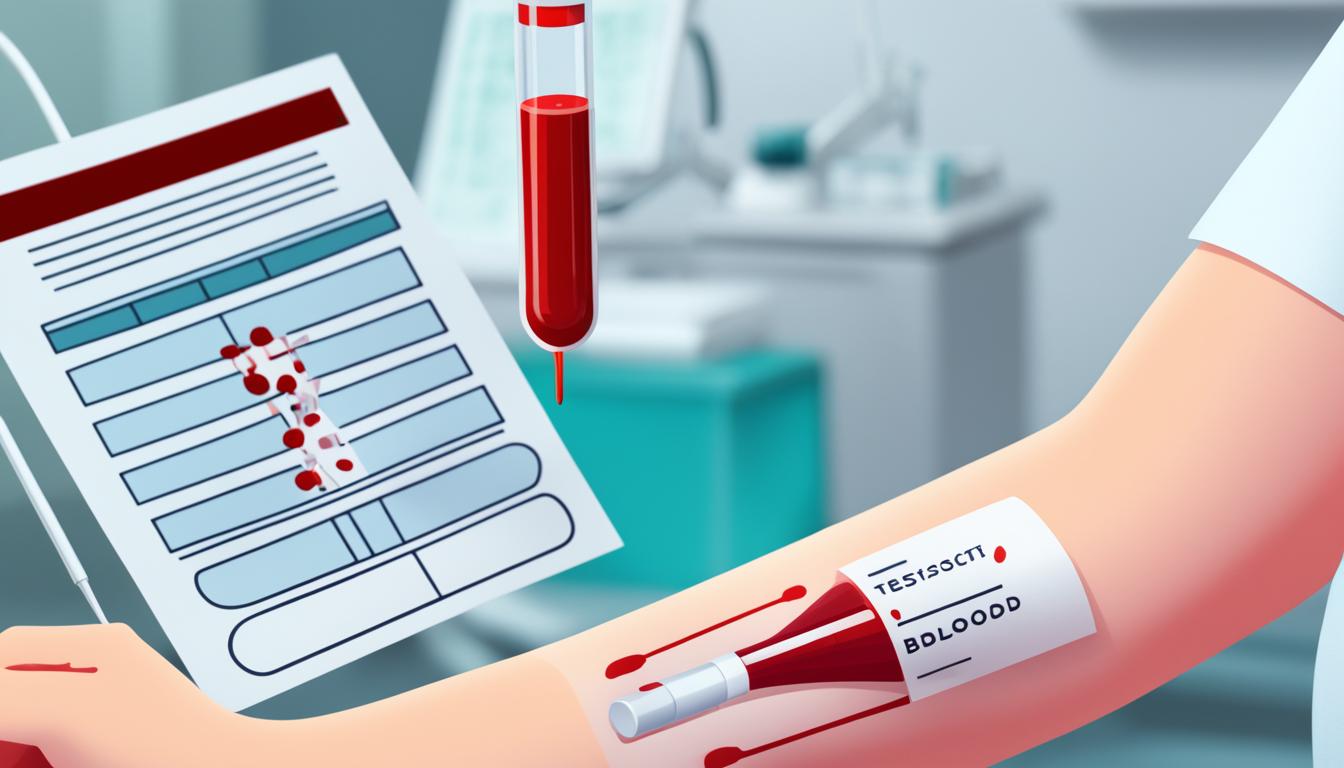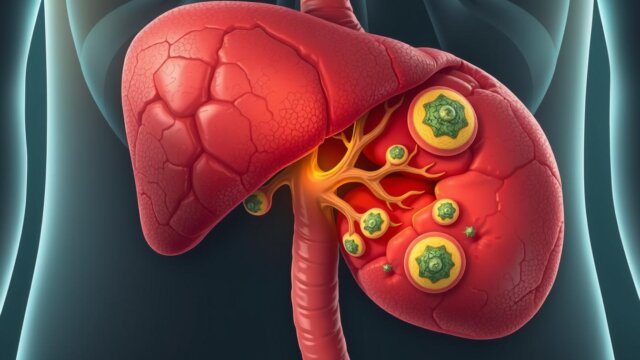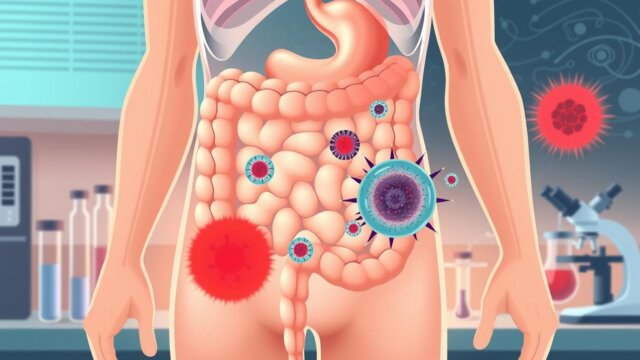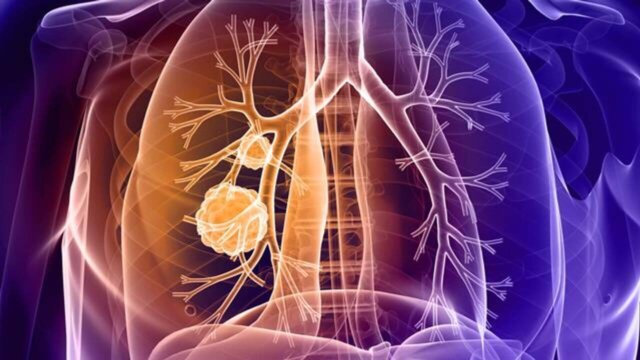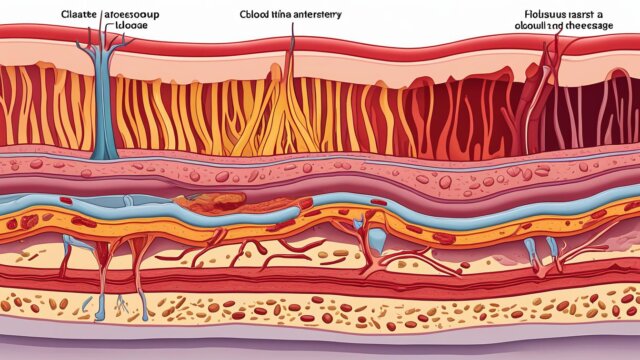FTC disclaimer: This post may contains affiliate links and we will be compensated if you click on a link and make a purchase.
Did you know a single blood test can tell a lot about your health? It checks your hemoglobin levels and spots early signs of chronic conditions. Blood tests are key in healthcare. They give clues about your blood cells, organs, and can hint at allergies or autoimmune issues.
Knowing about the types of blood tests and what they show can help you take charge of your health.
Key Takeaways
- Blood tests look at your blood’s parts like cells, enzymes, and electrolytes.
- Doctors use these tests to find health problems, keep an eye on conditions, and look for risks.
- Common tests include the complete blood count (CBC), basic metabolic panel (BMP), comprehensive metabolic panel (CMP), and electrolyte panel.
- These tests can tell you about your blood cells, organ health, and if you have infections, allergies, or autoimmune disorders.
- Understanding your test results and talking with your doctor can help you manage your health better.
What are Blood Tests?
Blood tests are a key tool in health care. They give insights into your health. They check your blood for cells, proteins, and other substances. These tests help find health problems, check how organs work, and see if treatments work.
Definition and Purpose of Blood Tests
A blood test looks at your blood in a lab. It aims to give doctors info on your health. This info helps them spot problems, make treatment plans, and check if treatments work.
Importance of Blood Tests in Diagnosing Health Issues
- Blood tests can spot many health issues, like anemia, infections, and chronic diseases.
- They can find cancer markers and check how organs like the liver and kidneys work.
- These tests also track how well treatments are working and watch for health changes.
Blood tests give a detailed look at your body’s health. They help doctors make smart health choices for you.
When Would You Need a Blood Test?
Blood tests are a key part of healthcare. Doctors often suggest them for many reasons. They help check chronic health issues, screen for problems, diagnose symptoms, and track treatment progress. Knowing when you might need a blood test helps you stay informed about your health.
Regular Physical Examinations
Blood tests are part of routine physical exams. They let doctors check your overall health and look for hidden conditions. Doctors suggest these tests based on your age, sex, and other factors to keep an eye on your health.
Screening Tests for Potential Conditions
Blood tests can spot risk factors or early signs of health issues like high cholesterol, diabetes, or thyroid problems. Your doctor might suggest these tests if your family history or other factors raise your risk for certain diseases.
Diagnosing Symptoms and Monitoring Treatment
If you have specific symptoms, your doctor might order blood tests to find the cause. These tests give clues about your body’s function and health issues. They help in making a diagnosis and treatment plan. Blood tests also track how well a treatment is working or if a condition is getting better.
Knowing why blood tests are done helps you get ready for your healthcare journey. Talking about your health history and worries with your doctor makes sure you get the right blood tests for you.
What Do Blood Tests Show?
Blood tests give a full view of your health by checking different parts of your blood. They show how your blood cells work, like red, white, and platelets. These cells are key for carrying oxygen, fighting infections, and stopping bleeding. Tests also check enzyme and electrolyte levels. These show how well your organs work and your metabolism.
Insights into Blood Cell Function
Blood tests tell you about your blood cells and how they work. A complete blood count (CBC) shows how many and what kind of cells you have. It can spot problems like anemia, infections, or clotting issues.
Enzyme and Electrolyte Level Indicators
Blood tests check enzyme and electrolyte levels too. These levels tell you about your organs and metabolism. High liver enzymes might mean liver disease. Imbalanced electrolytes like sodium or potassium could point to health issues.
Understanding what blood tests show helps you know your health better and spot any problems early. Regular tests are key to keeping an eye on your health.
But remember, blood tests are just one part of the picture. Always talk to your doctor to understand the results and what to do next. With the right advice, blood tests can help you stay healthy.
Common Blood Tests
Blood tests are key to keeping you healthy. They give important info about your health. They help with check-ups and checking health concerns.
Complete Blood Count (CBC)
The complete blood count (CBC) is a common test. It checks red blood cells, white blood cells, and platelets. This shows how your blood cells are working.
Basic Metabolic Panel (BMP)
The basic metabolic panel (BMP) looks at blood levels of glucose, electrolytes, and minerals. It helps with diabetes, high blood pressure, and liver or kidney issues.
Comprehensive Metabolic Panel (CMP)
The comprehensive metabolic panel (CMP) goes deeper than the BMP. It checks your body’s chemical balance. It looks at liver function and helps with diabetes, high blood pressure, and liver or kidney health.
Electrolyte Panel
The electrolyte panel checks blood levels of minerals like sodium, potassium, and chloride. These minerals are key for your body’s cells, nerves, and muscles to work right.
Blood Test | What it Measures | Purpose |
|---|---|---|
Complete Blood Count (CBC) | Red blood cells, white blood cells, platelets | Provides an overview of blood cell function |
Basic Metabolic Panel (BMP) | Glucose, electrolytes, minerals | Monitors conditions like diabetes, high blood pressure, and organ health |
Comprehensive Metabolic Panel (CMP) | Liver function markers | Provides a more detailed analysis of body’s chemical balance |
Electrolyte Panel | Sodium, potassium, chloride | Assesses balance of key minerals in the blood |

These tests are just a few of the many your doctor might order. They help check your health and find any issues early. Knowing what these tests do helps you work with your doctor to stay healthy.
Blood Test for Specific Conditions
General health screenings are great, but sometimes doctors need more specific tests. They order blood tests to check for certain health issues. These tests give important info about your health.
Allergy Blood Tests
Allergy blood tests check for IgE antibodies in your blood. These antibodies show allergies and help find what you’re allergic to.
Autoimmune Disease Blood Tests
If doctors think you might have an autoimmune disease, they’ll test for things like ANA or CRP. These tests look for signs of immune problems and help make a diagnosis.
Cancer and Blood Disorder Blood Tests
Blood tests are key for finding and tracking cancer and blood disorders. They check for tumor markers or do a complete blood count (CBC) to see how your blood cells are doing.
“Understanding the purpose and significance of specialized blood tests can empower you to take a more active role in your healthcare journey.”
Knowing about the different blood tests helps you work better with your doctor. It lets you make smart choices for your health.
Blood Test Procedure
It’s important to know how a blood test works for a smooth experience. We’ll look at the steps for getting ready and going through a blood test.
Preparing for a Blood Test
Before a blood test, there are a few things to think about. Most tests don’t need special prep, but some might require fasting or avoiding certain medicines. These can affect the test results. Always follow what your doctor tells you to do to get accurate results.
Blood Drawing Process
Getting a blood sample is called venipuncture or phlebotomy. It’s usually quick and doesn’t hurt much. A healthcare worker will clean the area and put a small needle into a vein in your arm for the sample. Blood has different parts like fluid and cells, which help check your health.
Men and women have different levels of blood components. For example, men have more red blood cells than women. Men’s and women’s hemoglobin levels and hematocrit also differ, which is important to know when looking at blood test results.
Modern technology helps with blood tests, making them quick and reliable. These tools can check many things, like liver or kidney function, cancer markers, and hormone levels. Experts then look at the results to help with diagnosis and treatment.
Knowing about the blood test process helps you get ready and take part in your health care. It lets you make smart choices for your health.
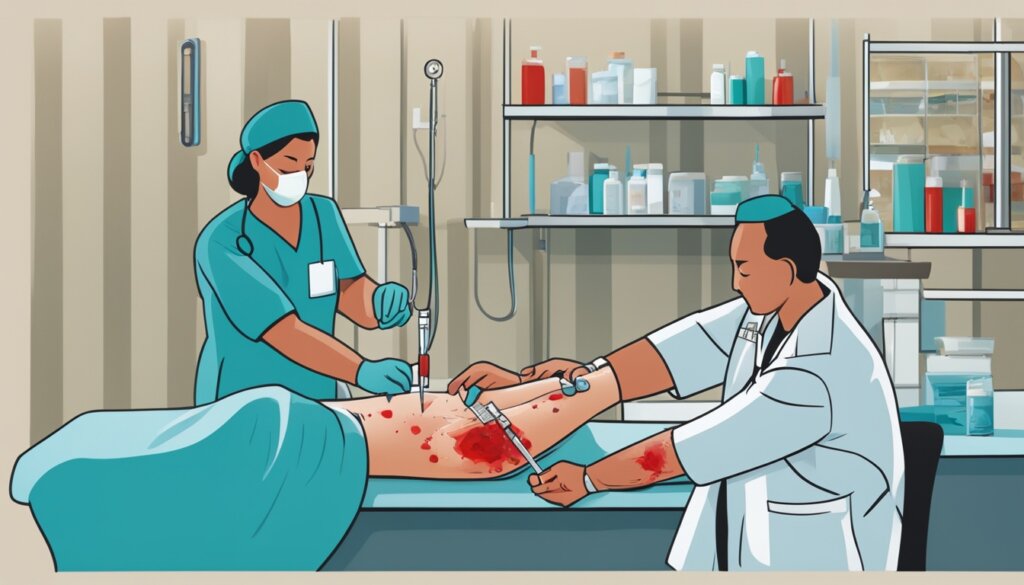
Understanding Blood Test Results
When you get a blood test, your doctor will look at the results. These results show the levels of different things in your blood. Each test has its own normal range. Your doctor will use these ranges to understand your results.
If your results are not normal, it might mean you have a health issue. Your doctor will explain what the results mean and what to do next.
Normal Ranges for Common Blood Tests
Normal blood test ranges can change based on your age, gender, and how the test is done. Here are some usual ranges for important blood parts:
- White Blood Cells (WBC): 4,500 to 11,000 cells per mL
- Red Blood Cells (RBC): 4.1 to 5.9 million per mL
- Hemoglobin (HGB): 12.3 to 17.5 grams per dL
- Platelets (PLT): 150,000 to 400,000 cells per mL
- Hematocrit (HCT): 35.9% to 50.4%
- Mean Corpuscular Volume (MCV): 80 fL to 96 fL
- Mean Corpuscular Hemoglobin (MCH): 27.5 pg to 33.2 pg
- Mean Corpuscular Hemoglobin Concentration (MCHC): 33.4 to 35.5 grams per dL
- Mean Platelet Volume (MPV): 7 fL to 10 fL
Remember, these are just general guidelines. Your doctor will look at your results and health history to understand them better.
Interpreting Abnormal Results
If your blood test results are not normal, it doesn’t always mean you’re sick. Your doctor will think about your symptoms, health history, and other test results to figure out what the abnormal results mean.
Some reasons for abnormal results are:
- Infection or inflammation
- Medication side effects
- Underlying medical conditions
- Dehydration or other temporary factors
Your doctor will work with you to find out why your results are abnormal and what to do next, if needed.
“Understanding your blood test results is crucial for maintaining your overall health. Work closely with your healthcare provider to interpret the findings and address any concerns.”
Blood Test
Blood tests are key in healthcare, giving us deep insights into our health. They show us how our bodies work, like checking cholesterol and blood sugar levels. They also tell us about our organs, like the liver and kidneys.
The Complete Blood Count (CBC) is a common test. It looks at different parts of your blood to spot infections or anemia. Thyroid tests can also find if your thyroid is working too much or too little, affecting your heart.
Blood tests can spot serious conditions like a heart attack by checking troponin levels. They can also check your risk of heart failure with a BNP test. If you’re on blood thinners, keeping an eye on INR levels is key to getting the right dose.
Blood Test | What It Measures | Purpose |
|---|---|---|
Full Blood Count (FBC) | Different blood levels | Diagnose infections or anemia |
Thyroid Function Test | Thyroid gland function | Identify underactive or overactive thyroid |
Lipid Profile | Cholesterol and fat levels | Assess heart disease risk |
Liver Tests | Liver function | Evaluate overall health |
Clotting Screen | Blood clotting speed | Monitor blood-thinning medication |
BNP Test | B-type natriuretic peptides | Diagnose heart failure |
Blood Glucose (HbA1C) | Average blood sugar levels | Identify prediabetes or diabetes |
U&E Test | Urea and electrolyte levels | Assess heart function and kidney health |
Blood tests are a big help in healthcare, giving us a full picture of our health. They help diagnose and manage many health issues. Knowing about blood tests can help you take charge of your health.
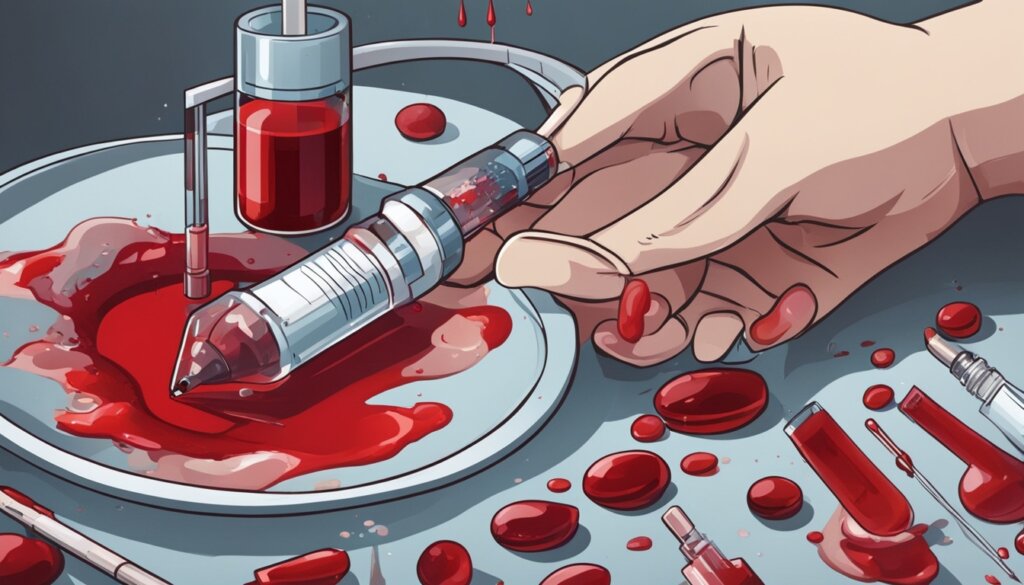
Blood Tests for Monitoring Health
Blood tests are key to keeping an eye on your health. They spot problems early before they get worse. These tests check your cholesterol, thyroid, and heart health.
Lipid Panel for Cholesterol Levels
A lipid panel checks your cholesterol levels. It looks at HDL (good) and LDL (bad) cholesterol. Keeping your cholesterol in check lowers heart disease risk.
Your total cholesterol should be under 200 mg/dL or 5.2 mmol/L to cut heart disease risk. Aim for LDL levels under 130 mg/dL or 3.4 mmol/L, and ideally under 100 mg/dL or 2.6 mmol/L. If you’re at high risk, try to get LDL below 70 mg/dL or 1.8 mmol/L.
Men should have HDL over 40 mg/dL or 1.0 mmol/L, and women over 50 mg/dL or 1.3 mmol/L for heart health. Keep triglycerides under 150 mg/dL or 1.7 mmol/L to lower heart disease risk.
Thyroid Panel for Hormone Levels
A thyroid panel checks your thyroid gland’s function. It looks at hormone levels. This test spots thyroid problems that affect your metabolism and energy.
Cardiac Biomarkers for Heart Health
Cardiac biomarkers check your heart’s health through blood tests. They spot heart attacks or failure. An hs-CRP over 2.0 mg/L means a higher heart disease risk.
High lipoprotein(a) may signal heart disease risk, especially with a family history or normal cholesterol. Elevated ceramides in blood link to heart disease risk in 1 to 5 years. Troponin T levels up can mean heart disease risk in healthy people.
BNP levels in heart failure patients show treatment success and heart health.
Regular blood tests keep you informed about your health. They let you act early on any issues.
Risks and Side Effects of Blood Tests
Blood tests are usually safe and don’t hurt much. But, there are some risks and side effects to know about. These can include bruising, bleeding, or infection where the blood is taken. Some people might feel lightheaded or even pass out during the test.
Doctors take steps to make these risks low. Still, it’s key to tell your doctor if you have worries or past issues with blood tests.
- After a blood test, you might see redness, bruising, and soreness where the needle was.
- Some people might feel sick, dizzy, or even faint after a blood test.
- Doctors suggest drinking lots of water, avoiding alcohol, and not exercising for a few hours after the test.
Some blood tests help treat blood-related problems, like too many red blood cells or too much iron. Other tests need you to not eat for 8-12 hours before the test.
Even though blood tests are mostly safe, talking to your doctor about your concerns or past experiences is important.
Potential Risks and Side Effects | Prevalence |
|---|---|
Bruising or bleeding at the puncture site | Common |
Infection at the puncture site | Rare |
Lightheadedness or fainting | Uncommon |
Nausea or vasovagal reactions | Uncommon |
Most blood test results come back in a day or two. Medicare often covers the cost of these tests, making them free or very cheap. There are many types of blood tests, like checking blood sugar, complete blood counts, and tests for different health issues.
But, a blood test can sometimes give wrong results, showing something that’s not really there or missing. The results can also be affected by your age, health, lifestyle, and medicines.
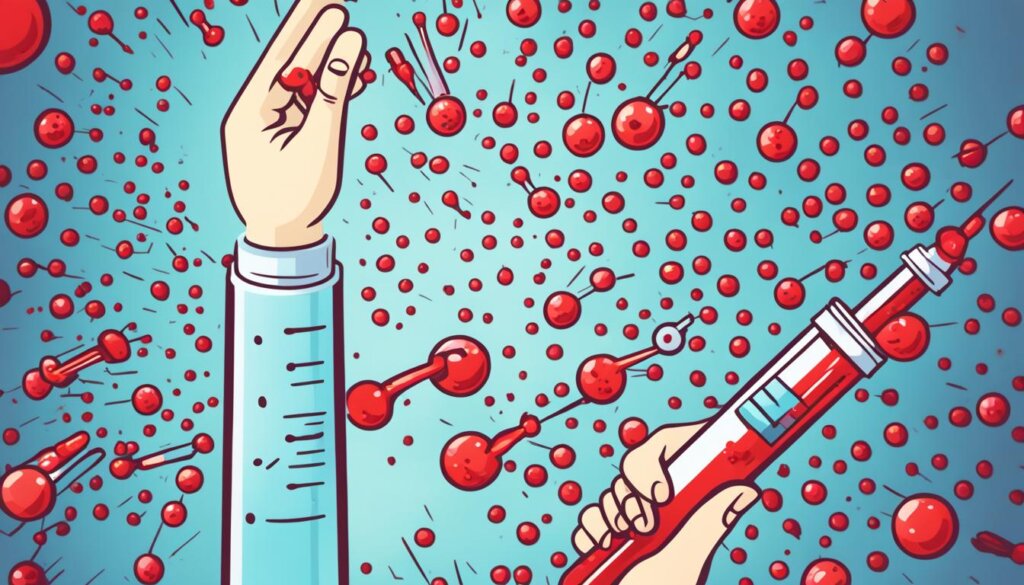
“Bloodletting has been practiced for thousands of years, starting with the Egyptians, then the Greeks and Romans, spreading to Asia and Europe. Ineffective and sometimes dangerous, bloodletting fell out of common practice by the end of the 19th century in Western cultures. Nowadays, phlebotomy in Western culture is mainly used for medical testing and treatment of specific blood diseases.”
Factors Affecting Blood Test Results
Understanding your blood test results is key. Your diet, meds, and when you get your blood drawn can change the results. This can make them not accurate or clear.
Diet and Medication Interactions
Some foods and meds can change your blood levels. For example, fasting before tests like blood glucose or cholesterol gives accurate results. Drinking water before a test helps your veins and keeps blood pressure steady. But, exercising before can mess with your cholesterol and glucose levels, making tests less accurate. Always tell your doctor about any meds or supplements you take, as they can change your test results.
Timing of Blood Tests
When you get your blood drawn matters too. Hormones and some blood components change during the day, peaking in the morning. Vitamin D levels change with the seasons, usually going down at year’s end. Some tests, like ovulation tests, need to be done at certain times in your cycle. It’s important to follow your doctor’s advice on fasting, meds, and timing for accurate tests.
Knowing what can change your blood test results helps you understand your health better. Work with your doctor and follow their advice for clear and accurate test results.
“Accurate and reliable blood test results are crucial for making informed healthcare decisions. By understanding the factors that can influence these results, you can work with your healthcare provider to ensure you get the most comprehensive and meaningful information about your health.”
Conclusion
Blood tests are key in healthcare, giving us an important summary of blood test information about our health. They help us understand what our blood tests show and how to make sense of the results. This lets us work with our doctors to make smart choices about our health.
Knowing about blood tests is very important. They check our blood cells, find nutrient shortages, and spot chronic conditions. This info helps us take charge of our health. By working with our healthcare team, we can make sure our test results help us make good health choices.
As you work towards better health, remember blood tests are a big help. They tell us about blood types and how they affect transfusions and donations. They also warn us about the risks of getting a blood draw. Use what blood tests teach us to improve your health and well-being.
FAQ
What are blood tests?
Blood tests check your blood to see how healthy you are. They look at your blood’s cells, proteins, and other stuff. These tests help find health problems, check how organs work, and see if you have infections or diseases.
When would you need a blood test?
Doctors might suggest a blood test for many reasons. This includes regular check-ups, looking for health issues, figuring out symptoms, and watching how treatments work.
What do blood tests show?
Blood tests show your health by looking at your blood’s parts. They check your blood cells and levels of enzymes and electrolytes. These things tell us about your organs and how your body works.
What are some common blood tests?
Common blood tests include the complete blood count (CBC), basic metabolic panel (BMP), and comprehensive metabolic panel (CMP). There are also tests for allergies, autoimmune diseases, and cancer.
How is a blood test done?
Getting a blood sample is done with venipuncture or phlebotomy. A healthcare worker cleans the area and puts a small needle into a vein, usually in your arm, to get the blood.
How are blood test results interpreted?
Blood tests have normal ranges for results. If your results are outside these ranges, it might mean you have a health issue. You might need more tests to figure out what’s going on.
What are the risks and side effects of blood tests?
Blood tests are usually safe but can have risks. You might get a bruise, bleed, or infection where the needle was. Rarely, you might feel lightheaded or pass out during the test.
How can factors like diet and medication affect blood test results?
Your diet and medicines can change your blood test results. Some foods or drugs can mess with the levels of substances in your blood. When you get your blood drawn can also affect the results.
